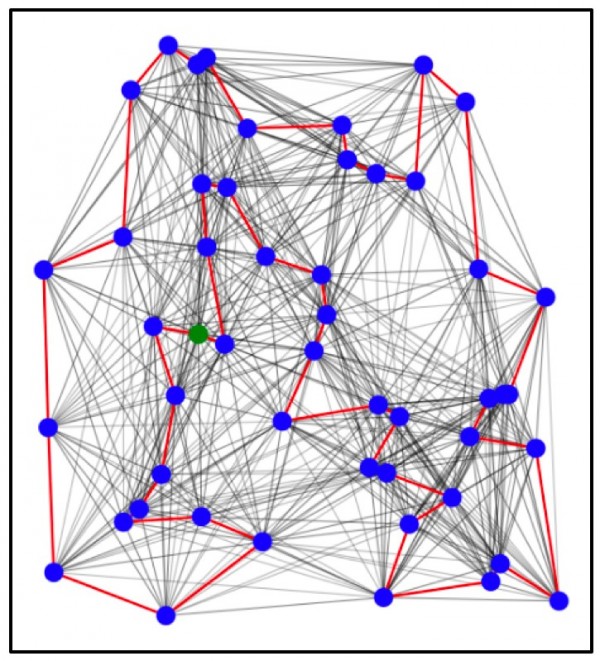 Virtual Workshop: In response to COVID-19, all participants will attend this workshop virtually via Zoom. Workshop registrants will receive the Zoom link a few days prior to the workshop, along with instructions on how to participate. The video of the recorded sessions will be made available on IPAM website.
Virtual Workshop: In response to COVID-19, all participants will attend this workshop virtually via Zoom. Workshop registrants will receive the Zoom link a few days prior to the workshop, along with instructions on how to participate. The video of the recorded sessions will be made available on IPAM website.
Workshop Overview: In recent years, deep learning has significantly improved the fields of computer vision, natural language processing and speech recognition. Beyond these traditional fields, deep learning has been expended to quantum chemistry, physics, neuroscience, and more recently to combinatorial optimization (CO). Well-known CO problems are Travelling Salesman Problem, assignment problems, routing, planning, Bayesian search, and scheduling. CO is basically used every day in finance and revenue management, transportation, manufacturing, supply chain, public policy, hardware design, computing and information technology.
Most combinatorial problems are difficult to solve, often leading to heuristic solutions which require years of research work and significant specialized knowledge. For example, the famous TSP problem has been studied for more than 80 years, and the best solver leverages 30 years of theoretical developments, data structures and heuristics from computer science. In the last few years, deep learning has developed some preliminary but promising approaches to deal with classical CO problems such as TSP, MaxCut, Minimum Vertex Cover, Knapsack, Quadratic Assignment Problem and Vehicle Routing Problems. DL is particularly attractive to address CO problems given its high flexibility, approximate nature, and self-learning paradigm. In other words, DL has the potential to learn universal high-quality algorithms and therefore could lead to a breakthrough in traditional CO, where algorithms are hand-crafted. On the other hand, synergies between DL and CO algorithms could lead to the possibility of taking the best of the two domains and deriving new algorithms, especially for applied problems.
The workshop will bring together experts in mathematics (optimization, graph theory, sparsity, combinatorics, statistics), CO (assignment problems, routing, planning, Bayesian search, scheduling), machine learning (deep learning, supervised, self-supervised and reinforcement learning) and specific applicative domains (e.g. finance, transportation, hardware design, computing and information technology) to establish the current state of these emerging techniques and discuss the next directions. Besides, such generalization of deep learning techniques to CO problems will also push forward the mathematical analysis of the properties of these learning systems like generalization and transfer, stochastic optimization and dynamic predictivity that make the success of these techniques.
Peter Battaglia
(DeepMind Technologies)
Xavier Bresson
(Nanyang Technological University, Singapore)
Stefanie Jegelka
(Massachusetts Institute of Technology)
Yann LeCun
(New York University)
Andrea Lodi
(École Polytechnique de Montréal)
Stanley Osher
(University of California, Los Angeles (UCLA))
Oriol Vinyals
(DeepMind Technologies)
Max Welling
(University of Amsterdam)